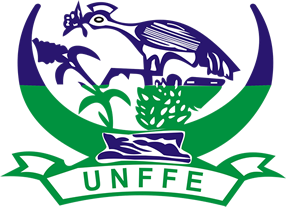Uganda National Farmers Federation(UNFFE) through its Directorate of Policy Research, Lobby and Advocacy conducted a three-days capacity building session for over 20 UNFFE member organizations from 20 Districts across the different regions of the country that is Arua, Koboko, Moyo, Adjumani, Nebbi and Zombo, Gulu, Lamwo, Kitgum, Agago, Oyam, Apac, Kamwenge, Kyegegwa, Kabarole, Isingiro, Kasese, Masindi, Hoima and Kiboga at the head office in Kampala.
The training session was hinged on the need to strengthen the efforts of the grass root farmers and farmers organization to penetrate the shrinking civic space and build capacity of family farmers to effectively engage in the development process for inclusive growth looking at strengthening the internal governance systems, building capacity of farmers to mobilize members to influence public policy and increase knowledge, skills to engage government agencies, local government on service delivery on issues affecting farmers. This is one of the initial activities that have started in the two-year project supported by TRIAS Uganda and the Belgium partner on Development following the launch of the project that took place a few weeks ago.
While opening the capacity building session, Dr. Dick Kamuganga the President of UNFFE thanked all the member organizations especially the ones present for keeping the niche of extending the highly needed services closer to the farmers in their respective District Farmers Associations (DFAs). He expressed his appreciation to the development partners’ support especially from TRIAS and the Belgium government for supporting this project technically and financially. “UNFFE’s main strategy is to compliment government programmes through suggesting propositions and alternative policy positions for government. UNFFE through it structure ensures effectively participation in all processes of policy formulation, and budget frameworks at local government level.” Dr. Dick noted. In addition, he urged DFA leaders to take advantage of their structures at grassroots to carry out auditing of government programmes since they are on ground observing their implementation sighting the latest government proposal of the Parish Development Model (PDM) as the last mile strategy for ensuring achievement of National Development Plan III (NDP III) result areas.
He indicated that under the NDP III, UNFFE fully embraces Agro-industrialization as a special purpose vehicle for causing socio-economic transformation of the 39 per cent smallholder farmers in the country. He encouraged them, that out of the 18 agricultural commodity clusters, DFAs should mobilize their members, organize them, and focus all their interventions at strengthening the selected commodity or commodities value chains covered under the 18 commodity cluster as DFAs. This is mainly to position the DFAs to benefit from government support focused at improving the production and productivity of the selected agricultural commodity. He also expressed the need to capitalize in lobbying the different district local governments to be part of the implementation of the PDM as strategic partners.
Caleb Gumisiriza, the Director Policy Research, Lobby and Advocacy at UNFFE further emphasized the need to expand the reducing civic space of all citizens especially farmers. He noted that if the rights and freedoms of individuals are compressed, then their demand for timely satisfactory service delivery is automatically compromised. He also noted that government is looking forward for feedback from DFAs on how to improve efficiency in their approach to programming and service delivery. He then tasked the participants to build resilient mechanism and come over the challenges associated with COVID-19 by turning them into opportunities through lobby and advocacy as a key strategy. “How do we put a farmers’ lens in all these services and approaches government is planning under NDPIII.” He asked. He further elaborated that Civic space points to a deliberate move of in-house thinking to improve organizational governance for DFAs, strengthen transformational leadership, have adequate organizational policies and leverage on the development of ICT to engage duty bearers for service delivery.
In his remarks the lead trainer in the three-day’s session Mr. Peter Kisambira, introduced the FACT methodology (Farmer Advocacy Consultation Tool) as a major tool for advocacy where DFAs can generate evidence-based facts and information and engage the necessary duty bearers from an informed pointed of view. He further indicated the need to raise issues from the most affected groups, to prepare prepositions and proposals but also get feedback on the prepositions agreed upon. This strengthens the point of ownership, and inclusive participations for both parts i.e. the farmers and government.






